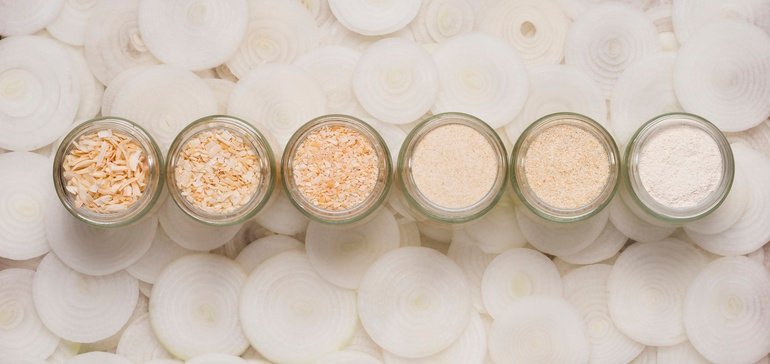Olam partners with Agri-Neo to develop organically pasteurized dried onions

Dive Brief:
- Olam Food Ingredients’ spices business has partnered with food safety tech provider Agri-Neo to develop pasteurized dried onions that meet USDA national organic standards. Agri-Neo’s Neo-Pure nonthermal pasteurization technology uses a blend of organic actives to eliminate pathogens while maintaining the ingredient’s natural flavor, color and aroma, according to the company.
- The Neo-Pure Pasteurized dried onions can be used in foods such as soups, pizzas, sauces, snacks, marinades and burgers. OFI’s spices business and Agri-Neo plan to collaborate on more food ingredients using the Neo-Pure technology.
- OFI, which became its own operating group in 2020 to boost parent company Olam International’s ingredients profile, calls itself the “largest vertically integrated processor of garlic and dried onion” globally. The partnership with Agri-Neo is happening as sales of organic food spiked 12.8% to $56.4 billion in 2020, with onion among the most sought-after of spices since the start of the pandemic.
Dive Insight:
Foods and beverages are typically pasteurized by being heated at high temperatures in order to kill bacteria and preserve their shelf life. However, some commonly used pasteurization methods use radiation, which is not permitted under USDA’s organic standards. Regulations emphasize the need for natural elements and require “biologically-based” farming and development methods. Thermal pasteurization can also affect the natural properties of food such as taste, color and texture.
Agri-Neo’s Neo-Pure technology is said to pasteurize food within minutes. It involves spraying an organic solution onto the food that biodegrades instantly, and drying it through evaporative cooling, which removes moisture without affecting the food’s integrity.
In a press release, Agri-Neo President Rob Wong said his company’s pasteurization technique was specifically designed to preserve the quality of food while making it safe to eat.
“It exceeds the rigorous ingredient industry efficacy standards by using a patented blend of organic actives in a dedicated food safety system to eliminate pathogens such as Salmonella, E. coli, and Listeria,” Wong said.
Greg Estep, CEO of OFI’s spices group, told Food Ingredients First that using Agri-Neo’s technology allows the dried onion to reach high standards of food safety while keeping its essential qualities. It also allows the ingredient to maintain its organic certification. But Estep said that customers are not just concerned with the packaging saying “organic” — they also want food that supports their interests around sustainability.
“Gone are the days where customers accept all product claims at face value,” Estep said. “For food companies, this more conscientious mindset means a greater focus is required on delivering food safety and traceability in product offerings.”
Onions have been one of OFI’s most prominent ingredients. More than 11,000 customers use Olam’s offerings, and it has three U.S. processing facilities specifically for the vegetable. Estep told Food Dive in 2020 that orders in the first month of the pandemic for onions, garlic, and chilies grown in the U.S. shot up by 20% over the previous year. Onions continue to be in high demand this year among its manufacturer and foodservice customers, according to Olam’s latest onion and garlic report — notably granulated, minced and powdered onion products.
Source: fooddive.com

